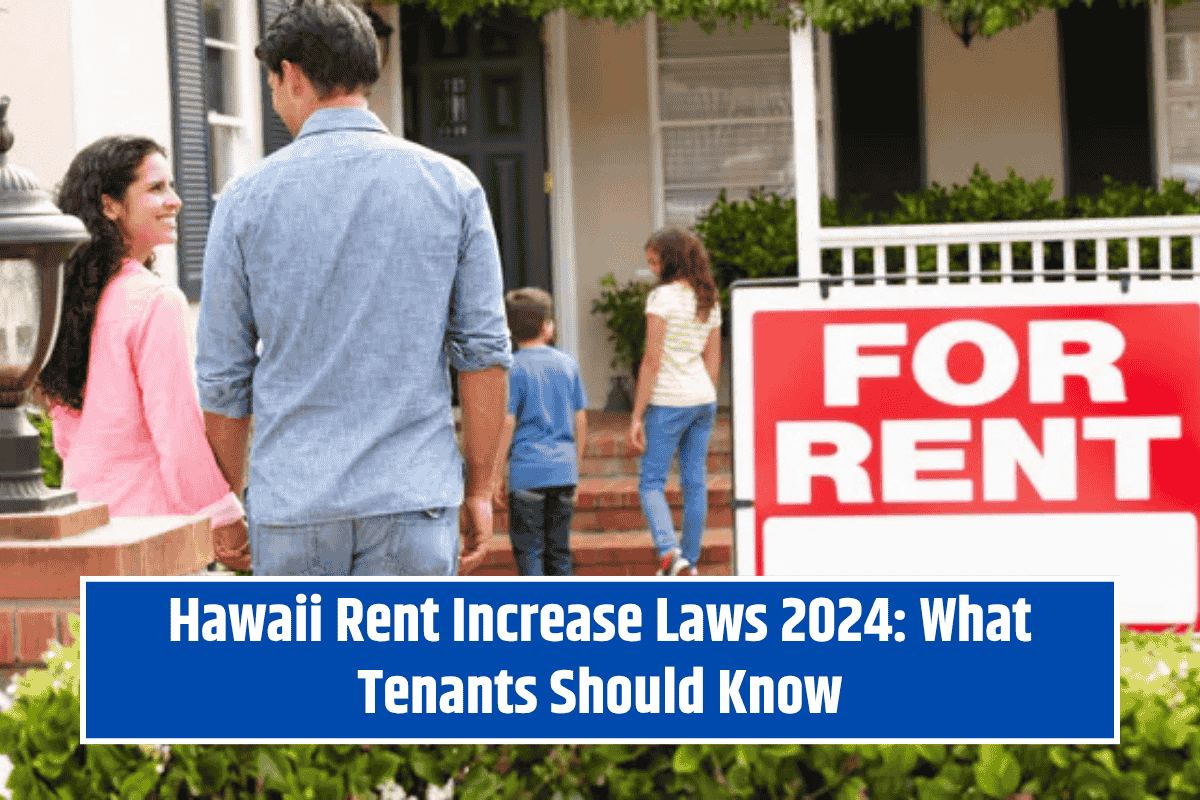In Hawaii, landlords are allowed to increase rent, but there are rules in place to ensure that these increases are fair and not sudden. While there is no state-wide rent control to limit the amount landlords can raise rent, tenants are protected by laws requiring proper notice and preventing unfair practices like retaliation or discrimination. Understanding how and when rent can be raised is important for both tenants and landlords to avoid legal problems and confusion.
Are Rent Increases Allowed in Hawaii?
Yes, landlords in Hawaii can raise rent, but they must follow certain guidelines. Even though there is no cap on the amount a landlord can increase rent, they must follow clear rules about timing and notice. These rules help protect tenants from unexpected or unreasonable increases.
Rules for Month-to-Month and Weekly Tenants
Month-to-Month Tenancy:
For month-to-month tenants, the landlord must provide at least 45 days’ written notice before any rent increase takes effect. This gives tenants enough time to decide if they want to accept the new rent or move out.
Weekly Tenancy:
For weekly tenants, the law requires a 15-day notice before a rent increase. These shorter notice periods are designed to give tenants the chance to adjust to the change in a reasonable time.
These rules are in place to avoid sudden rent increases that could catch tenants off guard and force them to make quick decisions.
Rules for Fixed-Term Leases
Tenants with fixed-term leases, like a 6- or 12-month agreement, do not have to worry about rent increases during the lease period unless the lease specifically allows it. The landlord must wait until the lease ends before proposing a rent increase. Any increase would be included in a new lease agreement, ensuring tenants have rent stability throughout their current lease.
When Is a Rent Increase Considered Illegal?
A rent increase can be considered illegal in Hawaii if:
- The landlord fails to provide proper notice (less than 45 days for month-to-month tenants or 15 days for weekly tenants).
- The increase is seen as retaliation for tenants who file complaints or assert their legal rights.
- The increase is discriminatory based on race, gender, religion, or other protected characteristics.
- The rental property is unsafe or uninhabitable.
- The landlord violates the privacy or terms of the lease agreement connected to the rent increase.
Tenants can challenge these illegal rent increases by going to court or getting legal help.
How to Ensure Fixed Rent in Hawaii
For tenants who want stable rent prices, signing a long-term lease is the best solution. The lease should clearly outline:
- The lease duration (such as 12 months).
- The rent amount.
- Any terms about renewing the lease or increasing rent.
As long as the lease is in effect, the rent cannot be changed unless the lease specifically allows for it, helping tenants to avoid unexpected rent hikes.
Rent Increase During a State of Emergency
Under Hawaii law (Section 127A-30), landlords cannot increase rent during a declared state of emergency. This rule is designed to protect tenants during times of crisis, such as natural disasters or health emergencies, where sudden rent hikes could cause further hardship.
What Should a Rent Increase Notice Include?
A valid rent increase notice must be in writing and should include the following:
- The new rent amount.
- The date the new rent will start.
- The date the notice was issued.
This documentation ensures that both the landlord and tenant are clear on the terms of the rent increase, providing legal protection for both parties.
What Can Tenants Do If They Can’t Afford the Increase?
If tenants cannot afford the rent increase, they have a few options:
- They can try to negotiate with the landlord for a smaller increase.
- They may decide to move out before the new rent takes effect.
- They can seek help from tenant advocacy groups or a lawyer if they think the increase is unfair or illegal.
Tenants should always respond to a rent increase notice within the time frame specified in their rental agreement to avoid confusion or legal issues.
Though Hawaii doesn’t have statewide rent control, the state provides significant protections for tenants against unfair or sudden rent increases. Landlords must follow strict rules about notice periods and avoid retaliatory or discriminatory actions. For tenants who prefer rent stability, signing a fixed-term lease offers the most security against unexpected changes. Both tenants and landlords should fully understand their rights and responsibilities to ensure a smooth and fair rental experience in Hawaii.












